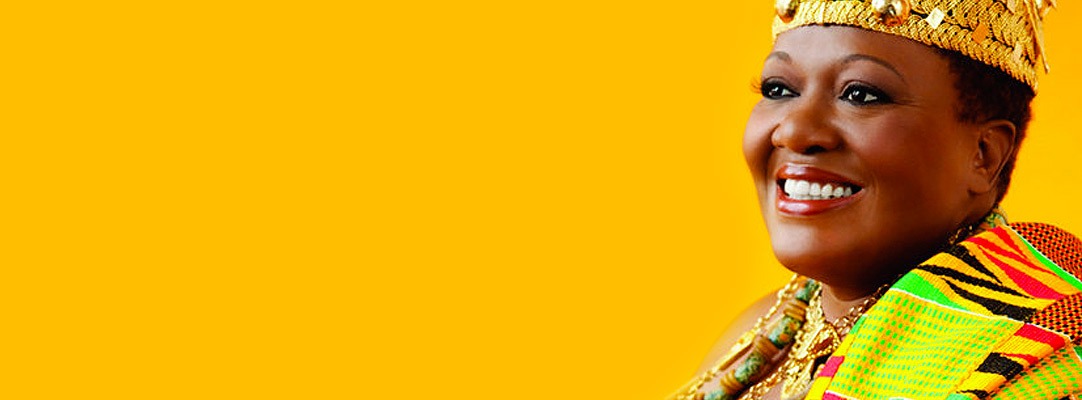Our Monday Gender Issue:
Having a woman as the king of an African fishing village can make a big difference.
During 2008, a secretary who works at Ghana’s Washington DC embassy got a middle of the night call at her home in Silver Spring, Maryland. Peggielene Bartels’s relative was on the line telling her that the king of Otuam had died and she was their new leader. The village elders had poured schnapps on the ground as they intoned the names of each of the 25 candidates. For all but Peggy, the liquid was absorbed. Three times, though, when they said her name, vapors rose. This signal from their ancestors indicated that Peggy Bartels was now Nana Amuah-Afenyi VI.
As Bartels explained, she accepted the offer because she thought she could bring improvement to the village. Concerned that wife beating was widespread, she virtually eliminated it by saying that “…wife beaters would be thrown in jail for a long time, until they were half rotten…and then kicked out of town for good.”
Meanwhile, at her first royal council meeting, she had to let the elders know that, “You must understand that my thoughts are those of a man…I am as strong as a man. I am as smart as a man. I demand the absolute respect of a man. If you understand this, we will get along well.” But then, identifying considerable graft, she replaced the members of the council with her own appointees.
With little local money available, King Peggy has gotten funding to support Otuam from her Maryland home town for projects that included running water and a library. Saying that she remains in touch with the village constantly by phone and is there more than a month a year, she has retained her US residency and citizenship.
So yes, the King Peggy story is interesting. But the implications for human capital are so much larger. When political leadership is reserved to a male contingency, then stereotypes abound about female leadership inadequacies. The more King Peggys we have, the more we get used to what women can do in politics, in business, and beyond.
Or, as one male Nana (King) from eastern Ghana said about King Peggy, “I’ve been really surprised by what she has done because I thought being a woman, she can’t.”
Here is where women wield political power:

More specifically targeting human capital, you can see where women concentrate:

Sources and Resources: Through interviews in The Washington Post, Oprah’s Magazine and the NowIKnow newsletter, a picture emerged of King Peggy and her leadership style. Also, I recommend this UN site, my source for the above charts.






